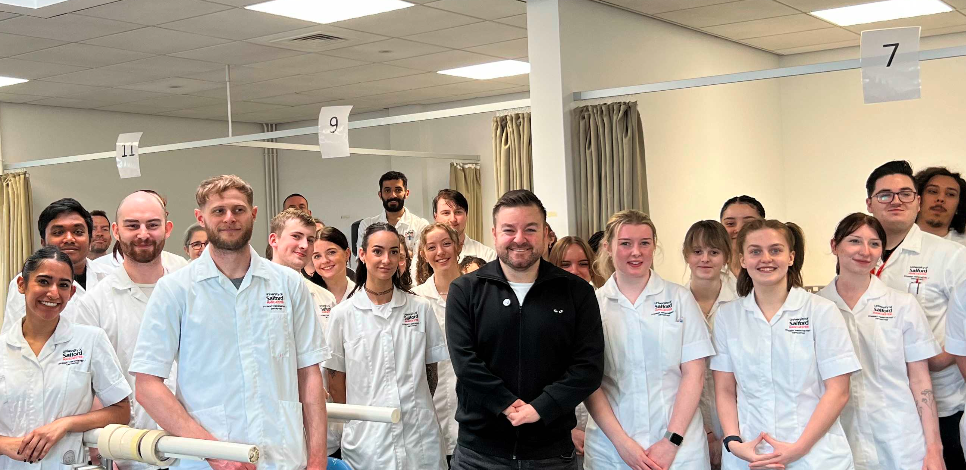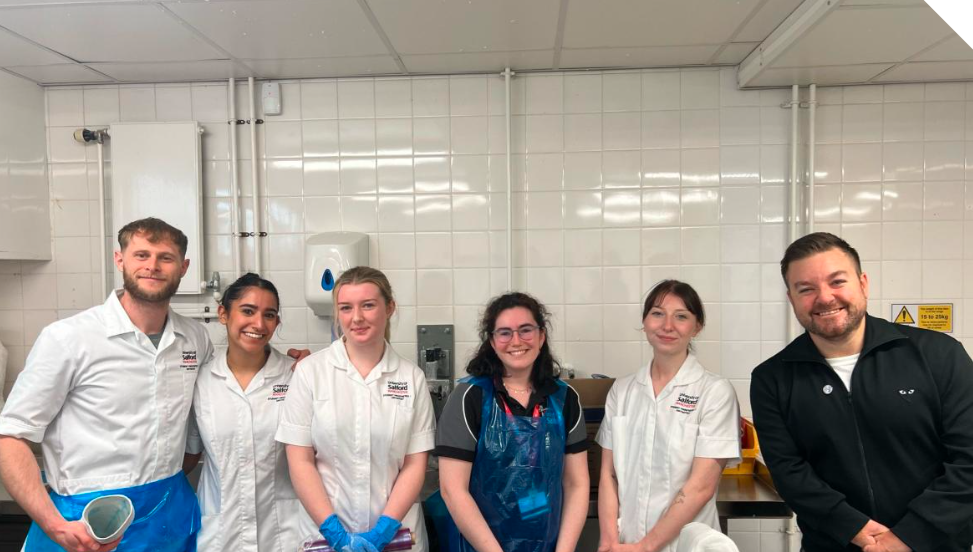
The comedian and TV presenter Alex Brooker recently visited the prosthetics team at The University of Salford.
Last week Alex visited the undergraduate and postgraduate Prosthetics and Orthotics (P&O) teams, who have been training future professionals for over 30 years.
Alex fronts Channel 4’s topical Last Leg comedy show along with Adam Hills and Josh Widdicombe. Alex was born with hand and arm disabilities. He was born without a fibula and became a lower limb amputee at 13 months old. A condition called Talipes in his left foot meant Alex wore an AFO (ankle foot orthosis) for most of his childhood.”
He is famously open about discussing this and is patron of several organisations which are all helping to normalise the conversation around limb loss and disability, including The British Association of Prosthetists and Orthotists (BAPO) who helped to organise the visit last week.
Alex commented: “All my mates know I’ve got a prosthetic leg but t I bet they’ve never thought about the person who has to make it for me.
“I’ve learnt stuff today that I wouldn’t have thought about, and I’m a prosthetics user myself.”
Salford University is currently the only one in England that offers a full time BSc (Hons) in Prosthetics and Orthotics (P&O). Despite this, applications to study it are falling across the UK, reducing the number of people who are skilled in this work.
Gill Rawlinson, director of allied and public health at the university, said: “Numbers of new applicants to P&O are declining right across the board in all universities.
“That’s a real worry for the profession, especially if you consider there are around 65000 people in the UK requiring at least one prosthesis and approximately 1.2 million people in the UK requiring an orthosis.”
Prosthetists provide artificial limbs (prostheses) for people who have had an amputation due to disease or trauma or who have been born without an arm or leg.
Orthotists provide splints or braces (orthoses) for people who need part of their body supported, corrected or protected.
Alex stated that before the visit he “hadn’t really appreciated the vital work that goes into the training.”
He said: “It’s up to the Prosthetists to help you gain your independence, or regain your independence in some cases. It can make or break [how you feel] how your prosthesis fits or not.
“It’s just something that seems so obvious but it’s the difference between leading an independent life – and not. I’ve got a lot of respect for the students here who have chosen this career path.”

















Recent Comments